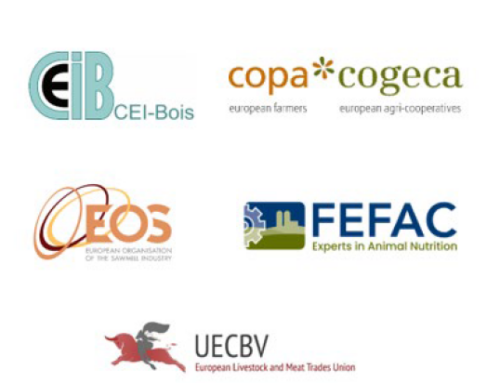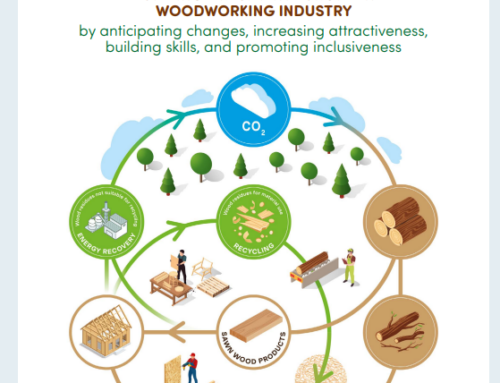
WOOD PRODUCTS FOR CLIMATE MITIGATION
Cascading use of wood, the new European Commission “Proposal for a Regulation on the inclusion of greenhouse gas emissions and removals from land use, land use change and forestry (LULUCF) into the 2030 climate and energy framework” and the undergoing development of free trade agreements between the European Union and strategic third markets were some of the most important topics analyzed and discussed in occasion of the EOS General Assembly held in Paris on 12 October 2016.
During this General Assembly meeting, an in-depth view of the European Study entitled “CASCADES: Study on the optimized cascading use of wood” was given by Professor Udo Mantau who is one of the study’s writers. Professor Mantau highlighted that the cascades study’s purpose is to be a scientific document that analyzes the wood flow and identifies where, in the wood flow, the cascading factor is higher. A list of potential solutions in order to increase the cascading use of wood are identified in the cascades study, nevertheless, Professor Mantau assured the EOS Members that this principle is not –and it should not be – a tool for direct intervention or regulation of market transactions of sawmill by-products / residues, but framework conditions may be improved to motivate involved industries towards cascading. EOS Members stressed that overall in Europe, the year 2015 and the first 9 months of 2016 have been affected by an oversupply in bark and sawdust. Particularly in Finland forest chips are being subsidized, putting pressure on sawmills’ by-products. Moreover, the situation has worsened also due to cheap fossil fuel prices and a couple of warm winters.
Looking into the new LULUCF proposal for Regulation, EOS members agreed that the new proposal should create favorable market conditions for increasing the use of harvested wood products (HWPs). The accounting system of the LULUCF Regulation proposes that “imported harvested wood products, irrespective of their origin, are not accounted for by the importing Member State ("production approach")”. Nevertheless it should be recognized that the carbon sink effect of wood products is as important as the material substitution effects for energy-intensive materials. The substitution of high-energy products by wood/wood-based products offers a strong potential to decrease the use of fossil fuels and increase carbon storage. Particularly, the LULUCF should stimulate Member States in enhancing the use of wood products because this will facilitate them in reducing carbon dioxide emissions and achieving the climate targets. In this sense, the expansion of green architecture using timber and wood products should be promoted. As the increased sustainable use of harvested wood products can substantially limit GHG emissions and enhance removals from the atmosphere, a holistic approach is needed in order to appropriately reflect the positive contribution of greenhouse gas storage in wood-based products and contribute to greater use of forests as a resource, within a framework of sustainable forest management. Sustainable forestry management is a conditio sine qua non for increasing the carbon storage and capture capacity of forests and the use of harvest wood products. In this sense, the LULUCF Regulation should both promote afforestation measures and stimulate the sustainable forest management. The expansion of the Nationals’ forest area is considered very important; projects in this sense should be identified and developed with in cooperation with the forestry industries.
Concerning the market, the EOS Members expressed great interest on the development related to the free trade agreement between EU and Japan. With almost two million m3 per year of sawn softwood imports, Japan is a strategic trade partner for the European forest-based industries and in particular for the European sawmills. The EOS members hope that this agreement could create favorable conditions for boosting the trade of sawn products to Japan.
The EOS General Assembly was concluded with an invitation to the Members to take part in the next General Assembly that will take place in Vienna on 21 June 2017, the day after the famed Schweighofer Prize.
Related Posts
Contact
EUROPEAN ORGANISATION
OF THE SAWMILL INDUSTRY AISBL
Rue Montoyer 24/box 20
BE-1000 Brussels
Tel.: +32 2 287 08 68
Email: info@eos-oes.eu



